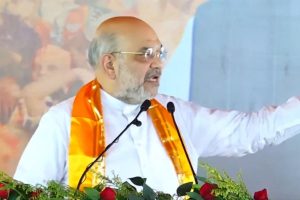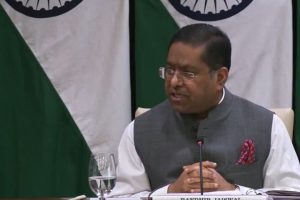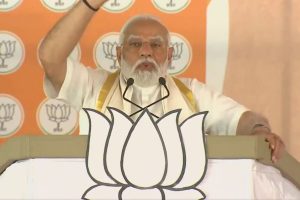France is in crisis a week ahead of the anniversary of the siege of Bastille on 14 July 1789. Governance has this week been reduced to an exercise in crisis management. With presidential elections less than two years away, President Emmanuel Macron’s reshuffle this week is thus an attempt to reassert his authority.
The decision to dispense with Édouard Philippe as Prime Minister was fraught not the least because Mr Philippe is deemed a more popular politician than Mr Macron. But his replacement by the low-profile Jean Castex, a fellow graduate of France’s elite civil service school, achieves two objectives. Mr Macron is now unlikely to be upstaged in the final phase of his tenure, as he was by Mr Philippe, and the appointment of another centre-right Prime Minister will be expected to shore up that part of the vote for his re-election attempt.
The plans and programmes, however, have generally gone haywire in the wake of the coronavirus pandemic. Ever since he stepped into Élysée Palace in 2017, President Macron has spent a large part of his presidency putting out fires, so to speak. The sudden emergence nearly two years ago of the gilets jaunes (yellow vest) movement, in protest against a rise in fuel tax, had provoked demonstrations in French cities of a scale that drew comparisons with the upheaval in 1968. A subsequent wave of strikes in response to planned pension reforms had brought Paris to a virtual standstill during much of December and January.
Buffeted by events, equally loathed by the hard left and the hard right, and criticised across the board for a perceived haughtiness in style, Mr Macron has found it impossible to become the smooth, technocratic President he aspired to be. The crisis in governance has now been exacerbated by the recession in the wake of Covid-19. In an astute expression of realpolitik, Mr Macron has now cleared the centrestage of potential rivals and might well start dictating the narrative. A major speech is scheduled for Bastille Day as France contemplates a predicted 11 per cent decline in GDP by the end of the year.
Mr Macron has promised a “new path” and it may prove to be a less divisive and confrontational one. Having described his politics as “neither left nor right”, his initial programme of economic liberalisation alienated his former allies in the French Socialist party. But although he has insisted that pension reform proposals will not be consigned “to the dustbin”, social solidarity and protection, along with the environment, are now the dominant themes. Large state aid packages for the car and aerospace industries have already been agreed upon. Both are linked to green objectives and the need to increase production. A bout of economic nationalism and a focus on self-sufficiency in pharmaceuticals and medical supplies may allow Mr Macron to make an impact on new constituencies, where Marine Le Pen has her strongholds.











